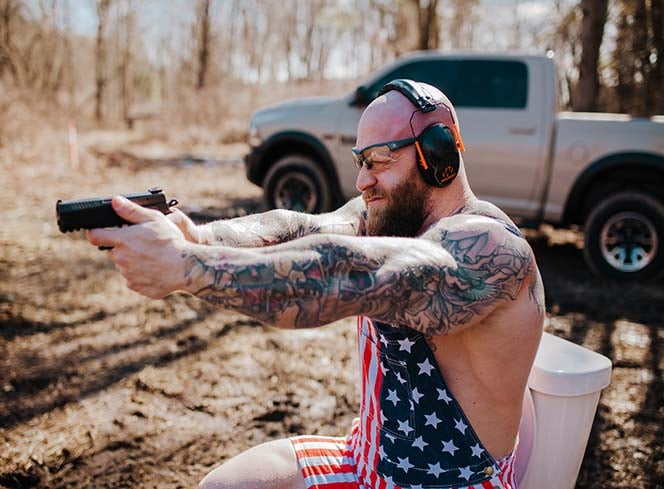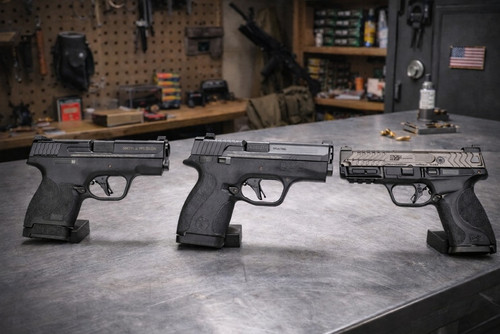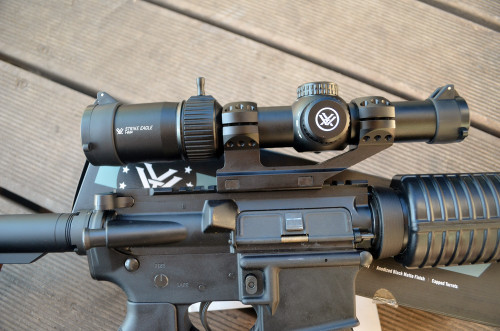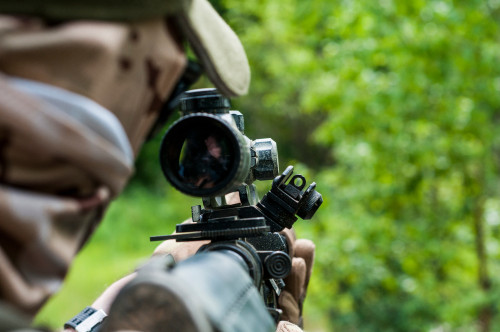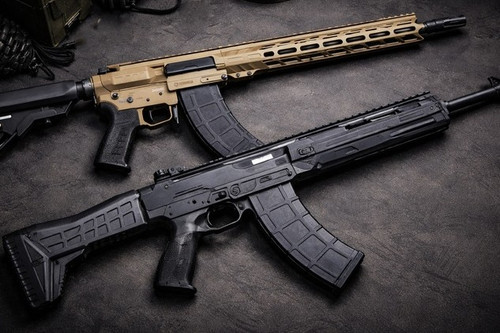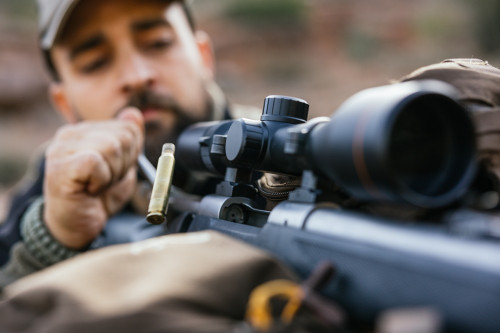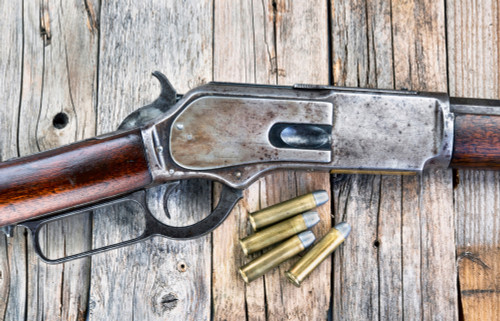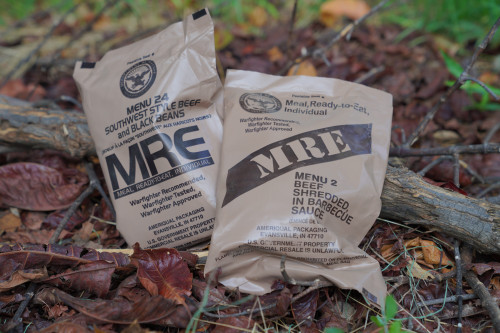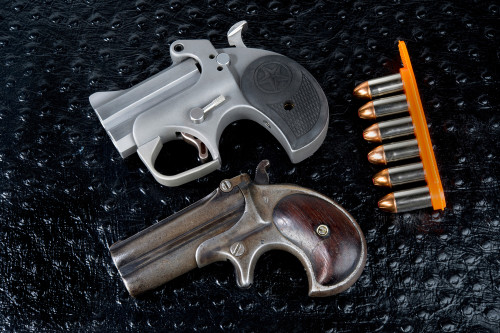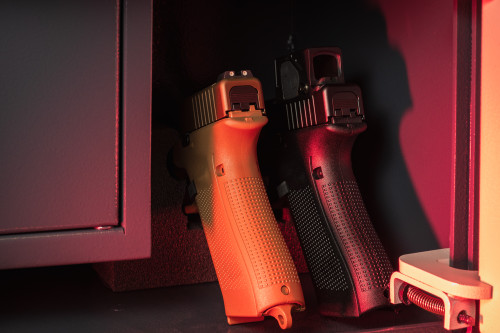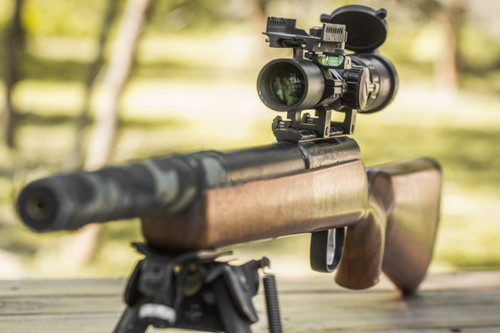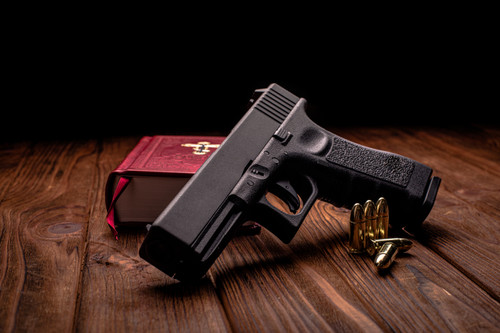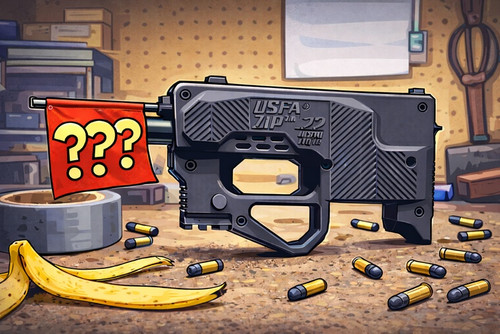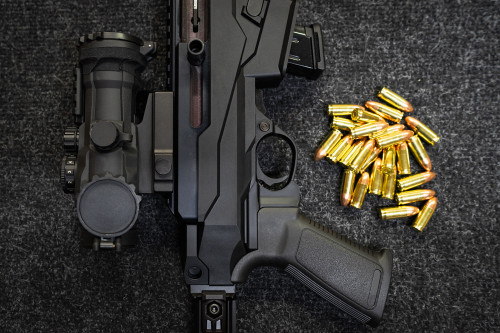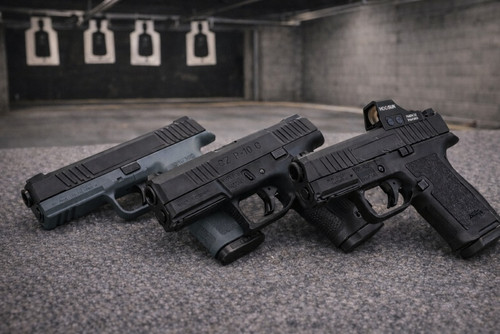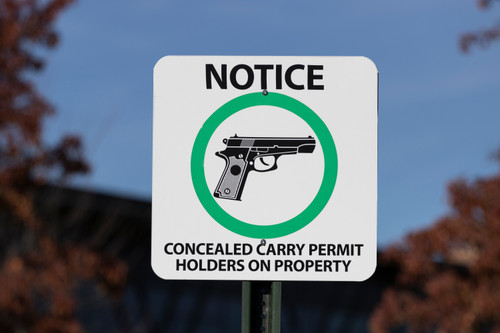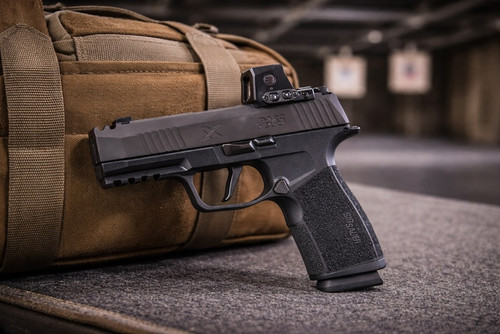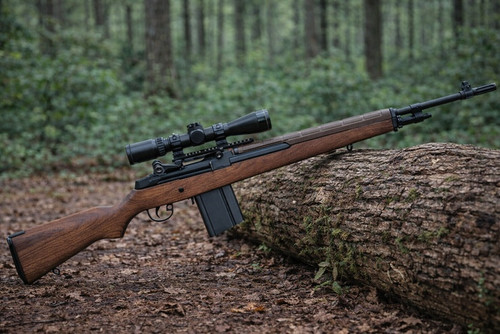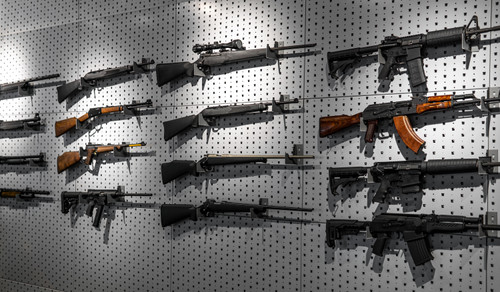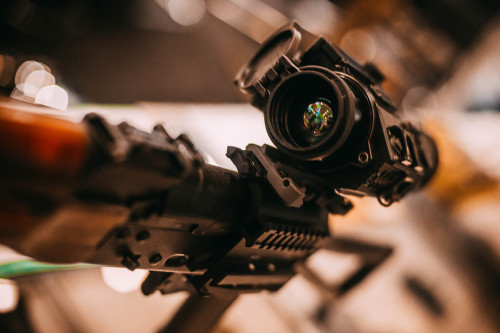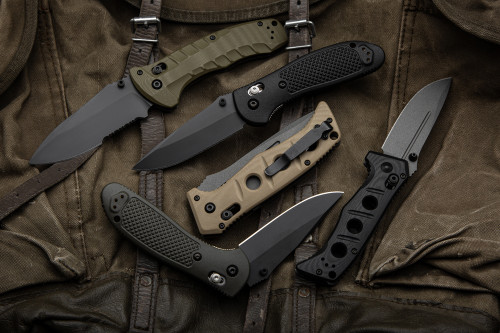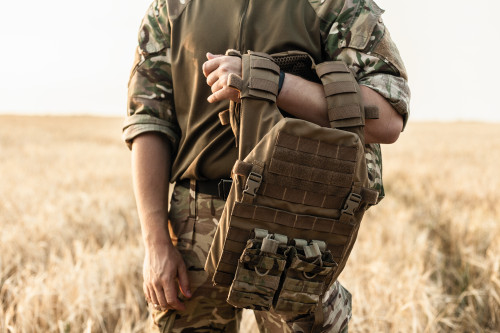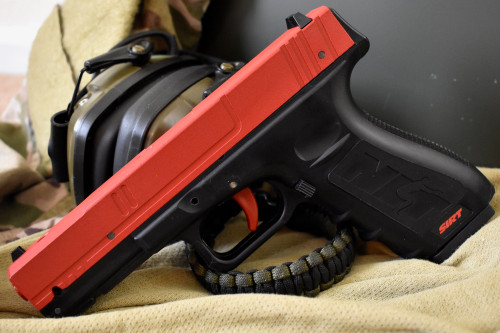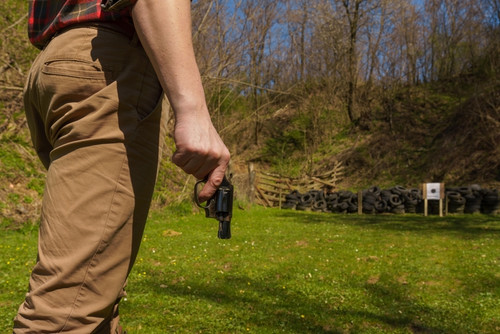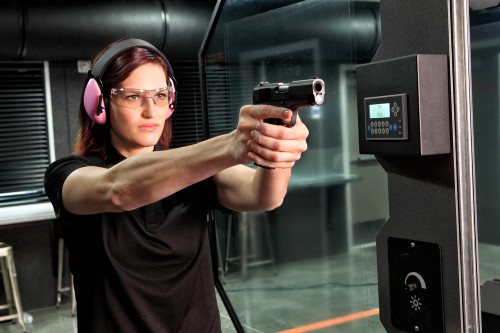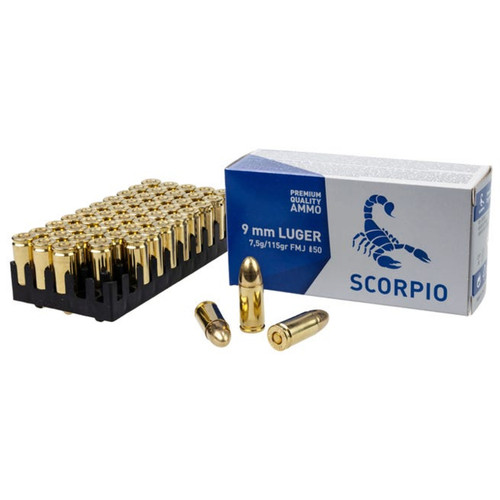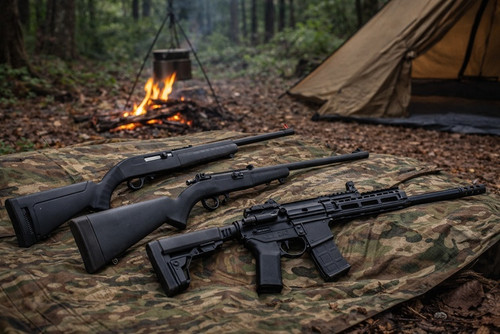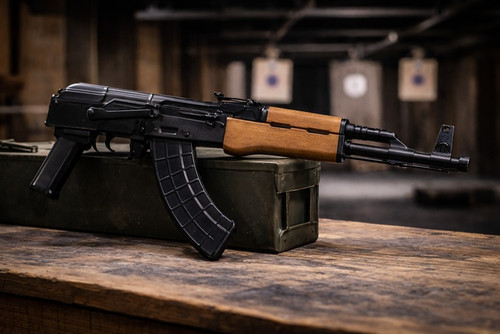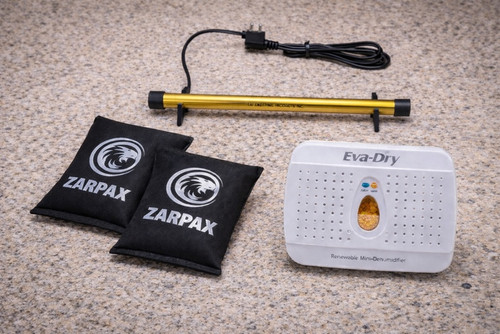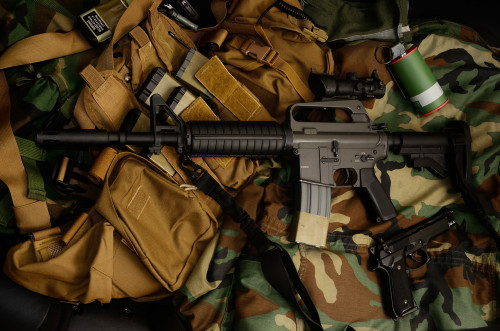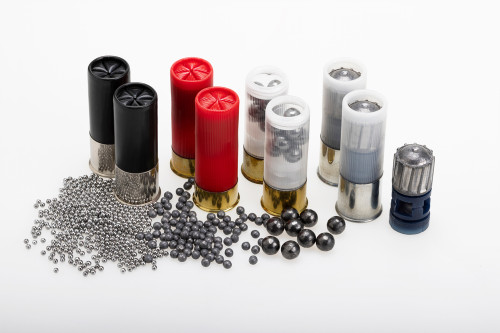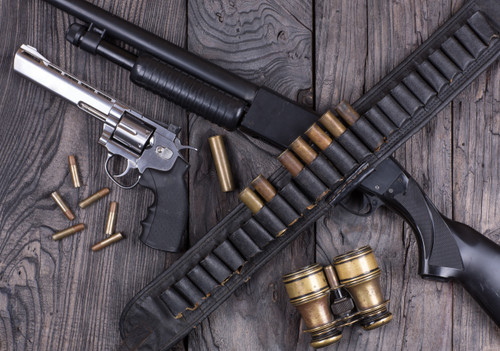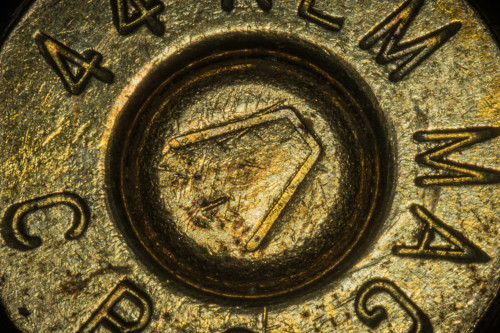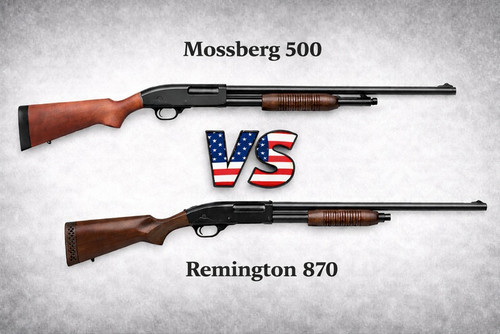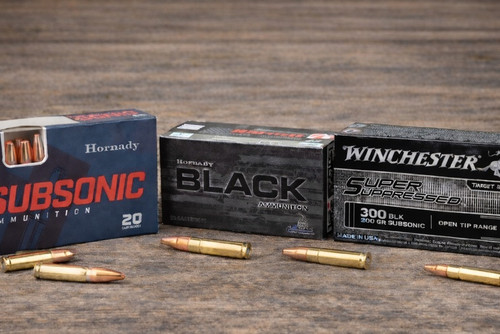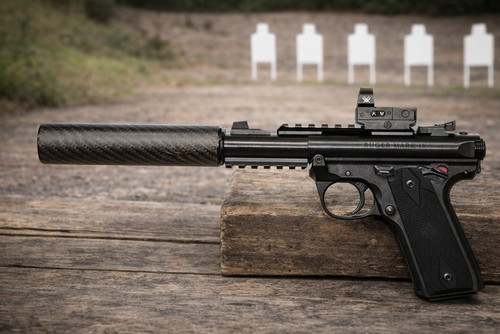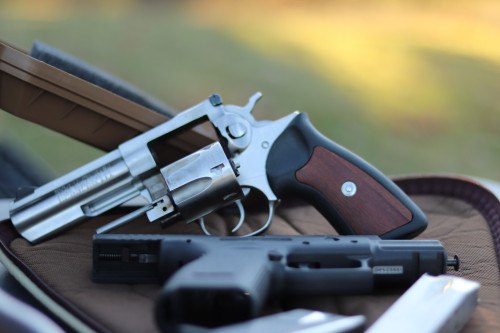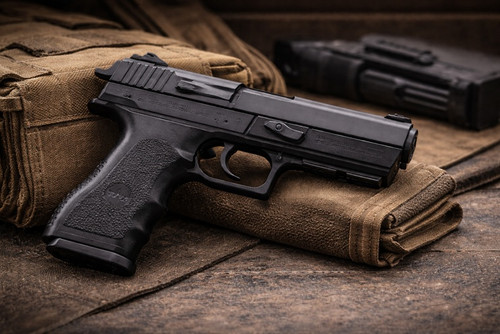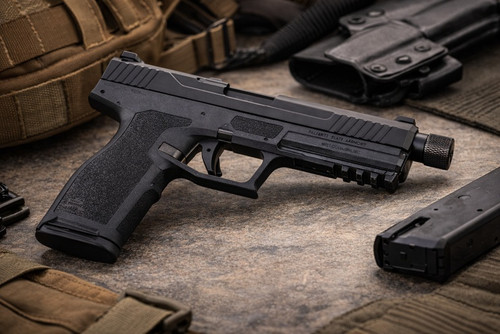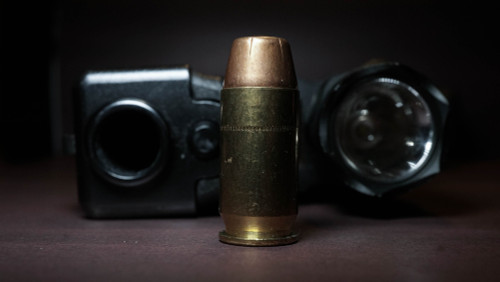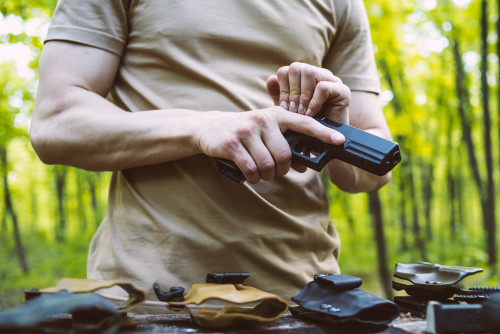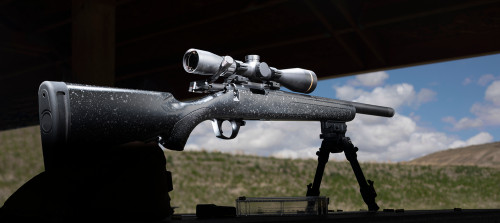One of the most terrifying situations someone can be in is a life-and-death struggle. While statistically unlikely, you never know when it could happen to you. If you want to be prepared, the most effective self-defense tool available is a firearm.
If you recently bought your first firearm, the next obvious question is: what about ammunition? As you browse the online store of your favorite ammo supplier, you’ll notice a wide array of ammunition types available. The most common choice is between Full Metal Jacket (FMJ) and Hollow Point (HP) rounds.
To understand the difference, it’s important to remember that despite the purpose or cultural significance, firearms and ammunition are just tools. Like any tool, you have to pick the right one for the job. A hammer is not better than a wrench, but a hammer is better at hammering and a wrench is better at wrenching. If you try to use a wrench as a hammer (we’ve all done it), you might succeed. But the results will probably be suboptimal.
The point is, you need both. FMJ and HP rounds each have unique characteristics that make them better suited for specific situations. Just as you need both a hammer and a wrench, a responsible gun owner needs both FMJ and HP rounds in their toolbox.
Let’s take a look at both ammo types to see how they work and their advantages in a home defense scenario.
Firearm Ammunition Explained
The word ammunition (or ammo) describes the projectile system for a weapon. Arrows are ammo for bows, rocks are ammo for slingshots, and cannonballs are ammo for cannons. “Cartridges” or “rounds” is how we refer to firearm ammo.
A firearm cartridge is actually a four-part ammo system combined in a single package. While we tend to call cartridges “bullets,” the bullet is technically only one part of the cartridge. The four parts of a cartridge are:
- Bullet – the projectile that flies out of the gun when fired
- Powder – the explosive substance inside the case that propels the bullet out of the barrel
- Primer – the explosive catalyst that ignites the powder when struck by the hammer
- Case – the shell that holds the whole package together
What is Full Metal Jacket Ammo?
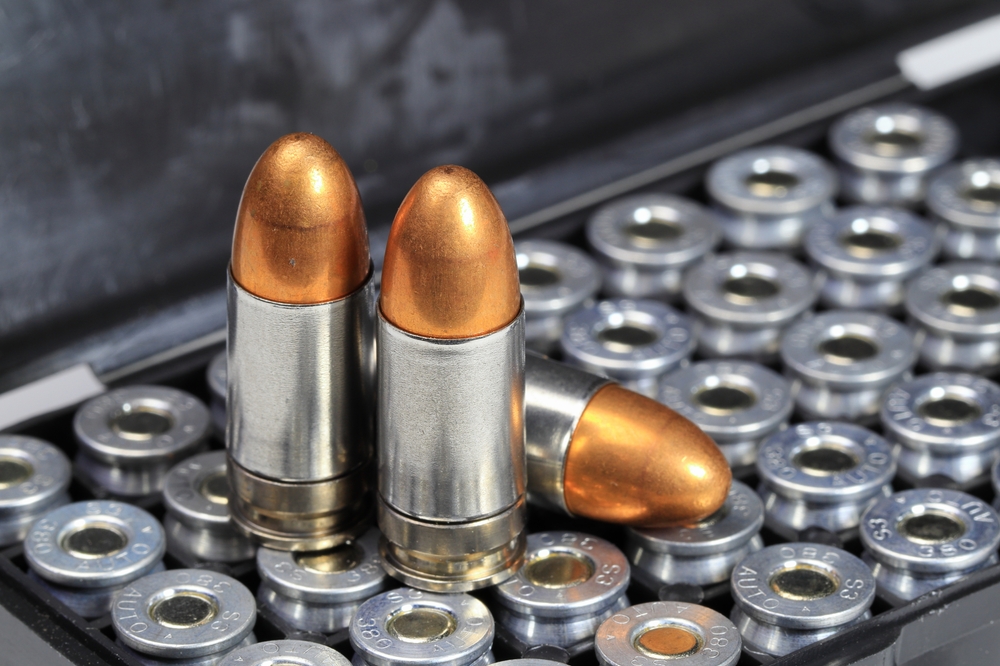
Full Metal Jacket is a type of bullet made from a soft lead core that is “jacketed” (or covered) in a sealed shell of harder metal. This design helps the bullet retain its shape, energy, and velocity when it passes through a target.
The simple design of FMJ rounds makes them cheaper to produce, which means you can get more ammo for your money.
What is Hollow Point Ammo?
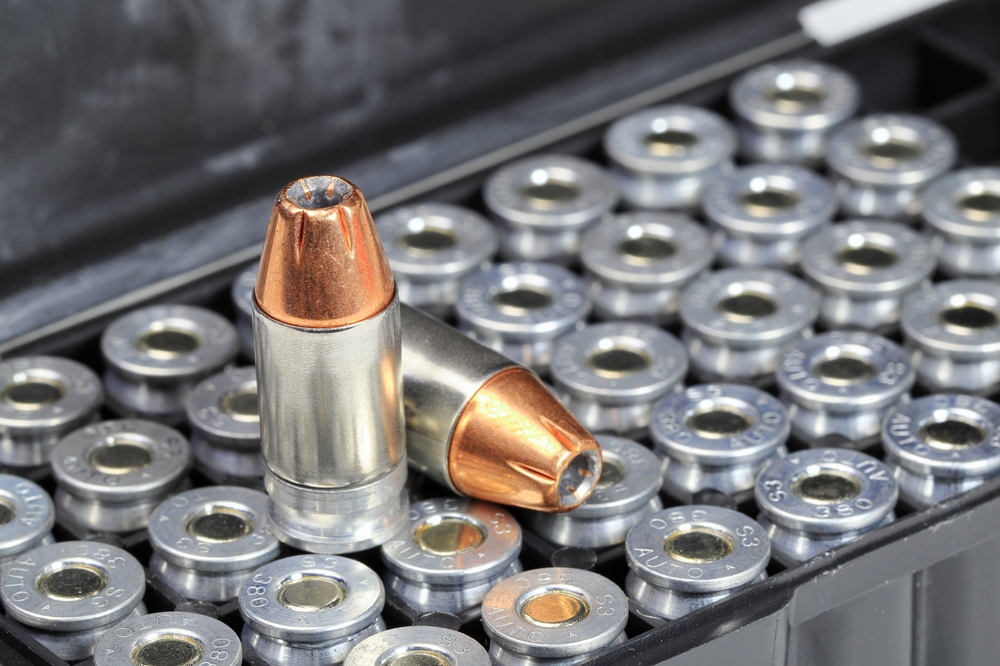
Hollow Point is a type of bullet made with a pitted or “hollow” tip, which is designed to expand upon entering a target. Also called “mushrooming,” this design ensures that all of the bullet’s energy is deposited in the target. As a result of this design, HP rounds tend to get lodged in targets and cause more catastrophic damage. But the complex design of HP rounds makes them more expensive to produce.
Despite efforts to enact controls, HP rounds are legal to own and carry in every US state. The one exception is New Jersey, which has made it illegal to carry HP rounds in a concealed weapon. You are allowed to have them at home, though.
Jacketed Hollow Points
As you shop for ammo, you might come across jacketed hollow point (JHP) rounds, which are an advanced (and pricier) version of standard HP. The difference is that the bullet is coated in a material that helps contain lead residue, which prevents buildup in your barrel and improves round feed from magazine to chamber.
FMJ vs. HP: Side-By-Side Comparison
Here is a side-by-side look at the characteristics of FMJ and HP rounds.
| Ammo Characteristics Compared | ||
|---|---|---|
| Full Metal Jacket | Hollow Point | |
| Target penetration | High | Low |
| Expansion on impact | Low | High |
| Energy transfer to target | Less | More |
| Velocity after penetration | High | Low |
| Stopping power | Less | More |
| Trajectory maintenance | More | Less |
| Accuracy | Less | More |
| Cost | Less | More |
Let’s Talk About Self Defense
It’s an unfortunate reality that you might find yourself in a situation that requires you to use lethal force to protect yourself, your loved ones, or other innocent bystanders. Self defense is not glorious. It’s horrible and ugly — all the more reason to be prepared.
Before we can figure out whether FMJ or HP rounds are better for self defense, we need to understand the characteristics of a real life-and-death self defense situation.
The Worst-Case Scenario
Expect that you will need to defend yourself or your family under the worst conditions at the worst possible time. Intruders aren’t going to attack you at the gun range. They are going to attack you at home in the middle of the night on a Tuesday when (and where) you are most vulnerable.
Plus, you will have the flu. And you just broke your glasses. And you got fired from your job today.
Chaos
Expect the life-or-death situation to be chaotic. You have to be ready to focus and do your best with very limited information and visibility. It’s dark, people are screaming (or hiding and needing to settle down), you don’t know how many attackers are in the house, and you don’t know where your kids are. And where is the dog?
Efficiency
Any hesitation on your part could result in tragedy. You’re in a chaotic, worst-case scenario. You don’t know how many bad guys are here, and you don’t know their intentions.
For the safety of you and your family, you have to end the situation as quickly and efficiently as possible. There is no time for negotiation, interrogation, or warning shots. Don’t try to “shoot him in the leg.” If someone broke into your house in the middle of the night, you have to assume the worst. They chose to be here, not you. Act accordingly.
Advantage
Knowing that you have to prepare for the worst possible situation, you must give yourself every possible advantage to win. You’re being attacked, so this is not supposed to be a fair fight from the beginning. Your attacker already has the upper hand because they have the element of surprise — it was their idea to break in. Your best chance to survive is to be better prepared and give yourself the widest possible margin of error.
Murphy’s Law
It’s a classic phrase for a reason: what can go wrong will go wrong, likely at the worst possible time. Fighting for your life at 2am in your underwear fits under this law. If you have never tested your gun before then, it will fail. If you haven’t practiced, you will miss. If you’ve never tested your ammo, it will jam. Effective preparation is your best defense against Murphy’s law.
FMJ vs. HP: Self-Defense Applications
Within the context of self-defense described above, let’s look at how FMJ and HP rounds compare, and how they both can be used to make you and your family safer.
Stopping Power
Knowing we need to end the fight as quickly as possible, and knowing we need every possible advantage, we want to use the round with greater stopping power. More stopping power means we can put fewer rounds on target with less accuracy and still effectively stop an attacker.
Even though FMJ and HP exit the barrel with the same amount of energy, HP rounds are designed to transfer as much of that energy as possible into a target. FMJ rounds can pass through and just keep going.
Make no mistake: an FMJ round on target is perfectly lethal. The issue is that an HP round hits the attacker harder and creates larger wounds. While an FMJ round might hit your target but miss their vital organs (leaving them just as dangerous), the HP round will deliver more catastrophic damage. Also, greater stopping power allows you to use a smaller gun as each bullet you fire is more lethal. This is especially important for physically smaller and weaker people looking to arm themselves for self defense.
Basically, the margin of error is wider with HP rounds. At least that’s the idea. Remember, the situation is chaos and nothing is guaranteed.
Collateral Damage
When it comes to self defense, you have two main responsibilities. First, you need to protect yourself and your loved ones. Second, you need to make sure you don’t make everything worse by hurting an innocent bystander.
In movies, people can shoot all over the place with no repercussions. But out here in real life, you are legally responsible for every round that exits your gun. Make sure they are all aimed at the intruder and don’t end up in your neighbor’s bedroom — or their cat.
HP rounds reduce collateral damage by design. As they expand, they become less likely to exit the target. If they do, their energy is reduced. This isn’t perfect, of course. There are no magic bullets. But as we said, you have to give yourself every advantage, no matter how small.
As you probably don’t live in a stone castle or steel bunker, you need to be aware of where your rounds might go if you miss your target. FMJ rounds will pass right through sheetrock and plywood, potentially hitting the very people you are trying to protect. The HP round is far more likely to stick in the wall if you miss.
Accuracy
Generally, HP rounds are more accurate. However, the difference in accuracy between HP and FMJ really won’t matter at the distances we’re talking about here (where self defense encounters typically take place). If you need sniper-level accuracy, it’s probably not self-defense!
However, that’s the accuracy characteristic of the bullet. The accuracy of the shooter is critical, and can only be achieved through regular and effective training.
Training
Owning a gun without training on how to use it makes it practically useless, and might even be more dangerous than not owning it at all. Despite what you may believe, you will not magically become John Wick when that intruder breaks in at 2am. Instead, you will default to the level of your training. All veterans know this.
When everything goes to hell, you don’t think. You just do what you are trained to do. If you don’t have any training, you’re out of luck. Like any tool, you’re better off not using it if you don’t know how and/or are unwilling to learn.
This isn’t just about going to the range and firing off a few rounds to see if it works. You need to be able to deploy the gun quickly and safely. You need to be able to reload it and manage jams or misfires. You need to be able to reflexively put rounds on target in suboptimal conditions, with your weak hand, from a compromised position.
While a lot of this training can be done without expending ammo, some of it needs to be done at the range with live rounds. This is where FMJ rounds come in handy. No need to expend expensive HP rounds while putting in reps. Develop your skill with cheaper FMJ and save your HP rounds for the bad guys. Use the money you save to learn from highly qualified instructors.
So Which is Better?
Hopefully by now, you can see that neither round is better or worse. Instead, they serve different purposes. To be a responsible and effective gun owner, you need both.
For Concealed Carry / Home Defense
We recommend using HP rounds in your everyday carry (EDC) and home defense weapons. HP rounds give you the best possible advantage to stop an attacker with the greatest possible reduction in collateral damage.
The exception to this is if you are carrying a smaller caliber round such as 380 ACP. A bullet can be small enough that the expanding properties of HP rounds will prevent any meaningful damage. Bullets like this can create superficial wounds or even get stuck in thick clothing. In this case, you are better off with the penetrating power of FMJ rounds.
For Training at the Range
For most of your range training, FMJ rounds are a better option. The lower cost allows you to put more rounds down range to build the skills and confidence you need. To be an effective “good guy with a gun,” you need to train as much as you can and develop the highest possible skill. Remember, you will default to the level of your training.
With that said, you still need to test your HP rounds before you carry them in your EDC. Remember Murphy’s law — if you’ve never fired those rounds at the range, they are guaranteed to jam at the worst possible time.
Final Thoughts
We hope you now have a better understanding of ammunition and how FMJ and HP rounds apply to effective self-defense. Each round has its strengths and weaknesses, so you really need to use and understand both for the best outcome. You don’t need a hammer or a wrench, you need a hammer and a wrench — and you need to know which situation requires which tool. Beyond that, specific ammunition choices will come down to your own preferences and what firearm you choose to carry.
If you are ready to make a purchase, why not get your ammo from a company that’s owned and operated by veterans? At Pro Armory, we stand by every product we sell, so you can be confident the ammunition you get from us is both safe and secure.
Pro Armory has both full metal jacket and hollow-point ammunition available in small boxes or bulk cases. Browse our store and start stocking up today!




